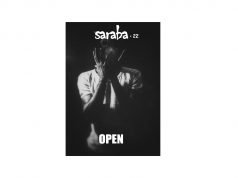Is a well-told lie better than a thousand facts? At no point in human civilization has the amount of information available exceeded the capacity to interrogate it in full. What has always seemed true is the inclination of many to tell compelling stories—homespun tales requiring no proof, sermons that derive their authority from uncanny events, and literature pulling the reader into a world where magic is in direct conversation with realism.
But there is work that is factual, and the ethical foundation on which journalism is built must not be shaken of its value. How do writers and artists in Africa take journalism as a starting point, building on stories reported in the news? How much conceit and imagination is required to do that? What is their responsibility to truth? Whose truth is it? This issue explores these questions, and more.
— The Editors
FICTION
Arthur Anyaduba, A Clockwork
POETRY
Okwudili Nebeolisa, Questionnaire for a Man from Another Man
Sanya Noel, If We Dredged the Babadogo River, For a While
PHOTOGRAPHY
Obuh Christopher Nelson, Asaba Massacres: Witnesses and Survivors
Immaculata Abba, In the Hands of God, We Rendezvous
NONFICTION
Kemi Falodun, We Are Going Back Home
































